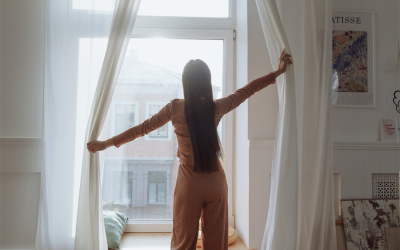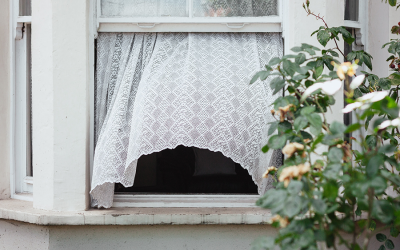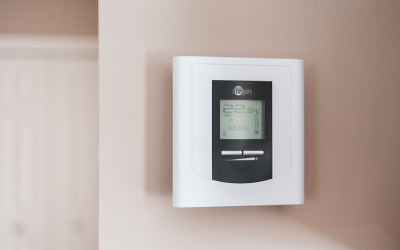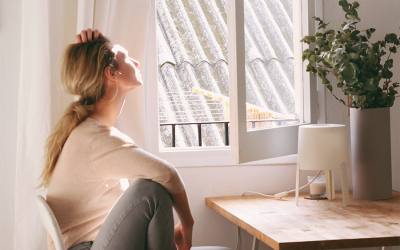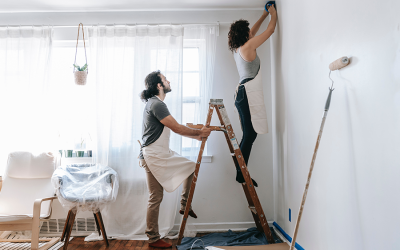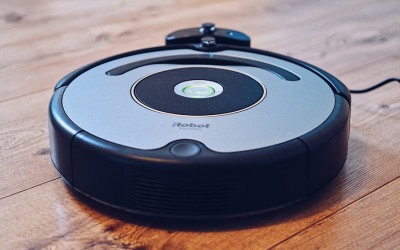Drawing the curtains or pulling down the blinds at night, during the cold months can help to keep the house warm for longer, and reduces heating consumption.
AVOID OVERHEATING
In the summer months, overheating can occur since direct sunlight enters through the windows. It is important to avoid the latter, by using sunscreens such as overhangs, slats, awnings, deciduous vegetation or even curtains or blinds if we have no other option available. It is also advisable to ventilate the house taking advantage of the coolest times of day (early morning and night).
REGULATE THE TEMPERATURE
It is important an adequate regulation of temperature in highly hot and cold months. It is advisable to keep home between 22°C and 25°C in summer and between 19°C and 21°C in winter during the day and between 15°C and 17°C at night. As humidity increases in summer, it may be necessary to reduce temperature to maintain the same wind chill. It is recommended to keep temperature at 25°C or even higher in the summer months. A difference of more than 7° C compared with outside temperature may be unhealthy, and any extra degree of temperature increases energy consumption over 8%. In winter, turn down the temperature level when you are at home. You can exercise at an adequate temperature to reduce the risks of cardiovascular disease, diabetes and also to lose weight. Wear warm clothes and try to have hot drinks from time to time.
USE NATURAL LIGHT
Think about the house layout so that you can use natural light in the most efficient way, according to the different activities you do. Choose soft colours for interior walls or install solar tubes or skylights to favour the entry of natural light in darker areas:...
AVOID MOLD
High humidity levels in your home can cause damp patches and mold, and this can affect your health. If this happens, you need to clean, remove and replace the affected elements and consider the way fresh air gets into the room. A regulated ventilation really works!
AVOID THE PRESENCE OF CHEMICALS
Dust particles affect the respiratory system and also generate dust and dirt. The presence of chemicals (TVOC, total volatile organic compounds, OR HCHO, Formaldehído) also affects the respiratory system and cause eye discomfort. When sweeping, you are moving particles instead of removing them. If you are trying to reduce dust and chemicals at home, use a vacuum cleaner. If you have air-power heating/cooling systems, keep in mind that dirt and dust filters that are not changed regularly can lead to dusty surfaces and particles in the environment.

